From Bucharest to the Romanian countryside, reporters follow the challenging fight for rural energy access
100,000 households in rural Romania lack electricity. Their low economic viability means they're low on the priority list for government and the energy industry, but a small grassroots organization is stepping in.
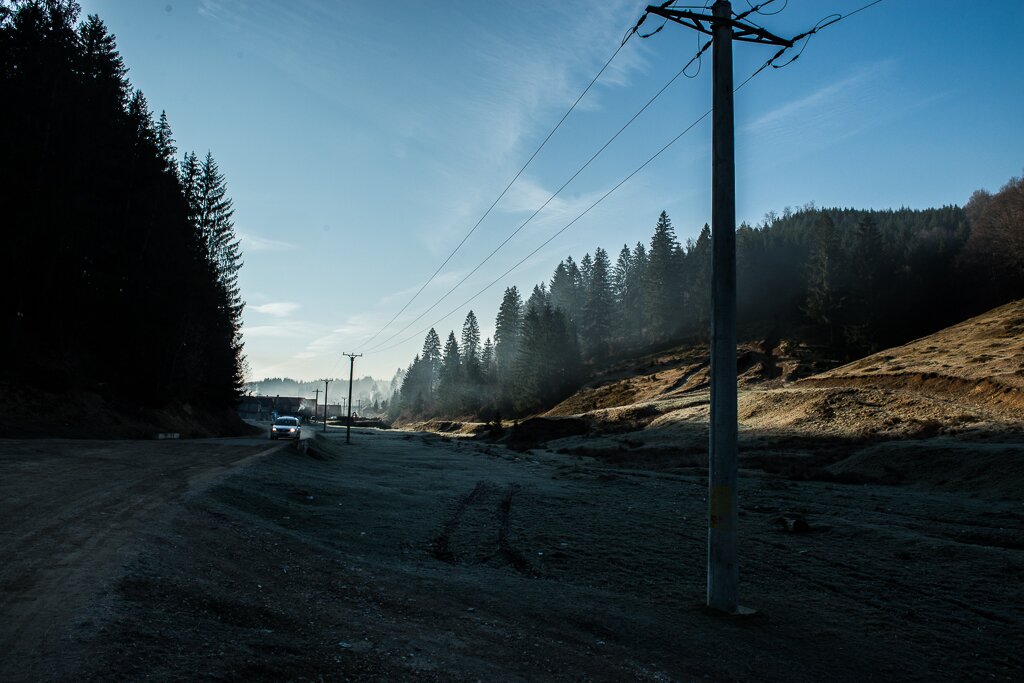
Late last year a friend of mine told me about Iulian Angheluta. “There is this guy who discovered a lack of electricity while cycling through rural Romania and came back with solar panels for the villagers.” After more research, I was surprised to find out there are parts of the EU where having electricity is simply not the norm.
After receiving the Discourse Media Access to Energy Journalism Fellowship, I started working on the story. I gave Iulian a call. The connection was bad, but he informed me he wasn’t sure when they would head up to the mountains next to set up panels. “It all depends on the weather and the funding,” he told me.
Eventually, there was no more time to wait. Together with my long-term collaborator Gayatri Parameswaran, I left for Bucharest. Denisa Morariu, a local journalist who had agreed to be our fixer for the story, welcomed us. After a short night of sleep we were scheduled to meet the Romanian minister for energy. However, a few hours before the scheduled meeting, his secretary told us that he had left last-minute to Berlin and would meet us once he got back. We used the time to take pictures of Bucharest and plan our trip to the countryside.
On Thursday morning, we awoke to great weather and boarded the train that would take us up the mountains to Brasov county. Six hours later, after a bumpy jeep ride, we finally made it to the farm houses outside of Holbav. The area is very hilly and the steep and muddy roads can be only accessed by a 4x4 vehicle. In the distance one can see snow-capped mountains.
Here we met with different villagers, some of whom have been helped by Iulian’s NGO, Free Miorita, while others are still living without electricity, or rely on small batteries to light up their homes.
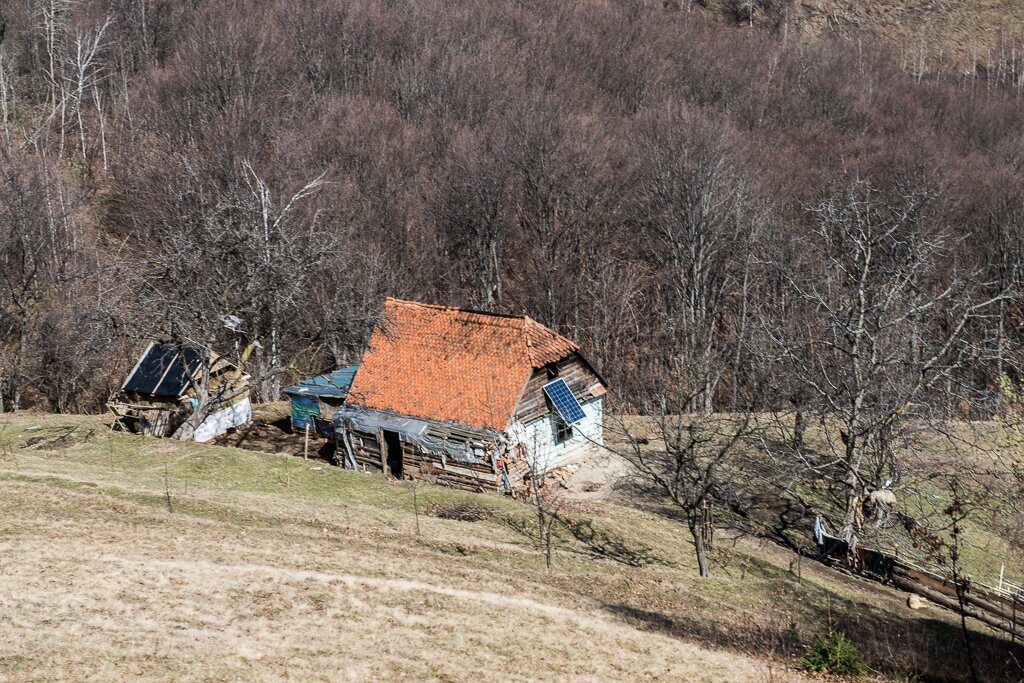
For an E.U. country, the poverty shocked me. Often, up to 10 people live in a small hut without electricity or running water. The children here have to walk one hour to get to school, and in the afternoon, they hurry to get their homework done before it is dark.
In the houses with solar panels, the situation is a bit better. People are able to have some dim LED lights at night and can charge their mobile phones. But one solar panel does not give enough electricity for bigger appliances, such as TVs or washing machines. One of the villagers complained how difficult it is to hand-wash all the clothes for her family of 10.
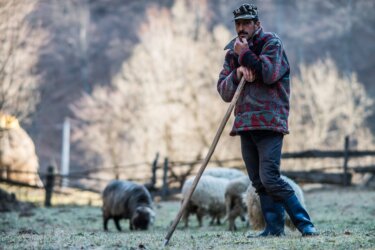
Towards the evening we meet Boboc Sorin, who got divorced from his wife a while back and now lives with his two sons on a remote farm. Their only source of energy is one small battery he got out of a scooter, which lights up a small bulb for a few hours at night. He tells us that his sons are afraid of the dark.
At around 9 p.m., we leave them to spend the night in a hut provided to us by a friendly local. We heat up the wood fire and sleep.
Early the next morning we head back to Sorin’s house. He is already up, sending his boys to school. He gives them his mobile phone so they can get it charged in the village.
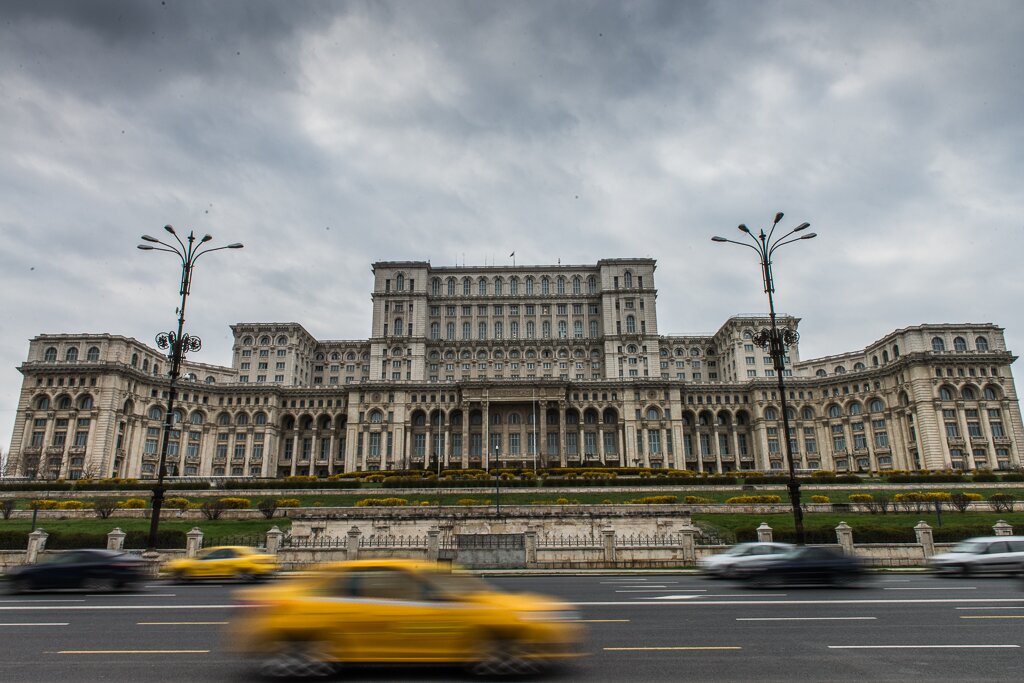
Back in the capital city of Bucharest, the contrast to the poor countryside is stark. The next day Iulian and his colleague from Free Miorita welcome us to the small garage where they store the solar panels. Preparations are underway for their next trip. They are genuinely passionate about bringing light to as many rural houses as possible, but they are also well aware of the limitations of their small NGO.
Later we meet an expert on energy, who used to work for the World Bank and other big international organizations consulting on energy. He is mainly interested in the future energy markets of Romania and it’s clear the 100,000 households without electricity in the country are not a big concern for him.
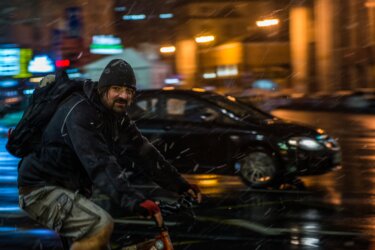
That same day we manage to do an interview via Skype with the investigative journalist Daniel Befu, who has been pushed out of Romania's journalistic mainstream and is now working for a smaller outlet. He is an expert on corruption within the energy sector and he gives us detailed examples of how politicians and energy companies are involved in corruption.
On Monday, our time in Romania nears its end and we have yet to speak with the energy minister, despite being told he would see us before we leave the country. But his secretary has stopped taking our calls and when we show up at the ministry, we have to argue with the security staff just to take a photo of the building. Another phone call to the minister’s secretary provides us with yet another promise that someone will get back to us with answers to our questions.
We are still waiting to hear from them. The electrification of the 100,000 poor households are clearly not a high priority.
